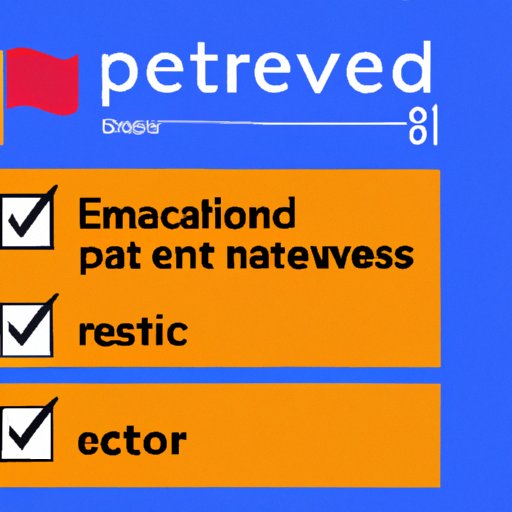Introduction
Paid vacation is a benefit that many companies offer their employees, but it’s more than just a reward for a job well done. It’s an important tool for businesses to use to improve employee engagement, retention, and performance. In this article, we’ll explore what paid vacation is, how it works, and the impacts it can have on employees.
What is Paid Vacation and How Does It Work?
Paid vacation is a type of leave from work that employers provide to their employees with pay. This type of leave typically allows employees to take time off from work without having to worry about losing income. Paid vacations often come in the form of paid holidays, such as Christmas or New Year’s Day, or in the form of personal days or vacation days. Depending on the company’s policy, employees may also be able to take unpaid leave.
When it comes to paid vacation policies, there are typically two different types: accrual-based and lump sum. Accrual-based policies allow employees to accumulate a certain number of hours of paid vacation each year, which they can then use at any time. Lump sum policies provide employees with a certain number of days of paid vacation each year that must be taken all at once.
Examining the Impact of Paid Vacation on Employee Engagement
Research suggests that providing paid vacation can have a positive impact on employee engagement. According to a survey conducted by the US Travel Association, 95% of respondents said that taking a vacation made them feel more appreciated by their employer. Additionally, 93% said that taking a vacation improved their overall job satisfaction.
It’s important to note that not all paid vacations are created equal. Different types of paid vacation policies can have different impacts on employee engagement. For example, offering flexible paid vacation policies that allow employees to customize their vacation time to meet their needs can help to boost engagement. Additionally, offering paid vacation days that are not tied to specific holidays can help to ensure that employees are taking the time off that they need to recharge and refocus.

The Role of Paid Vacation in Retention
Providing paid vacation can also have a positive impact on employee retention. A study conducted by the Society for Human Resource Management (SHRM) found that employees who had access to paid vacation were more likely to stay with their organization for longer periods of time. Furthermore, the study found that employees who used their paid vacation time were more productive and engaged than those who did not.
In addition to the direct benefits of paid vacation, there are also legal considerations that employers should be aware of. Many states and localities have laws in place that require employers to provide their employees with some form of paid vacation. It’s important for employers to understand these laws and ensure that they are compliant with them.
Conclusion
Paid vacation can be a valuable tool for businesses to use to improve employee engagement, retention, and performance. By offering flexible policies that allow employees to customize their vacation time, employers can ensure that their employees are taking the time off that they need to recharge and refocus. Additionally, by understanding local laws around paid vacation, employers can ensure that they are compliant with the law and providing their employees with the benefits they deserve.
In summary, paid vacation can be a powerful tool for employers to use to boost employee engagement, retention, and performance. By offering flexible policies and understanding local laws, employers can ensure that they are getting the most out of their paid vacation policies.
(Note: Is this article not meeting your expectations? Do you have knowledge or insights to share? Unlock new opportunities and expand your reach by joining our authors team. Click Registration to join us and share your expertise with our readers.)
